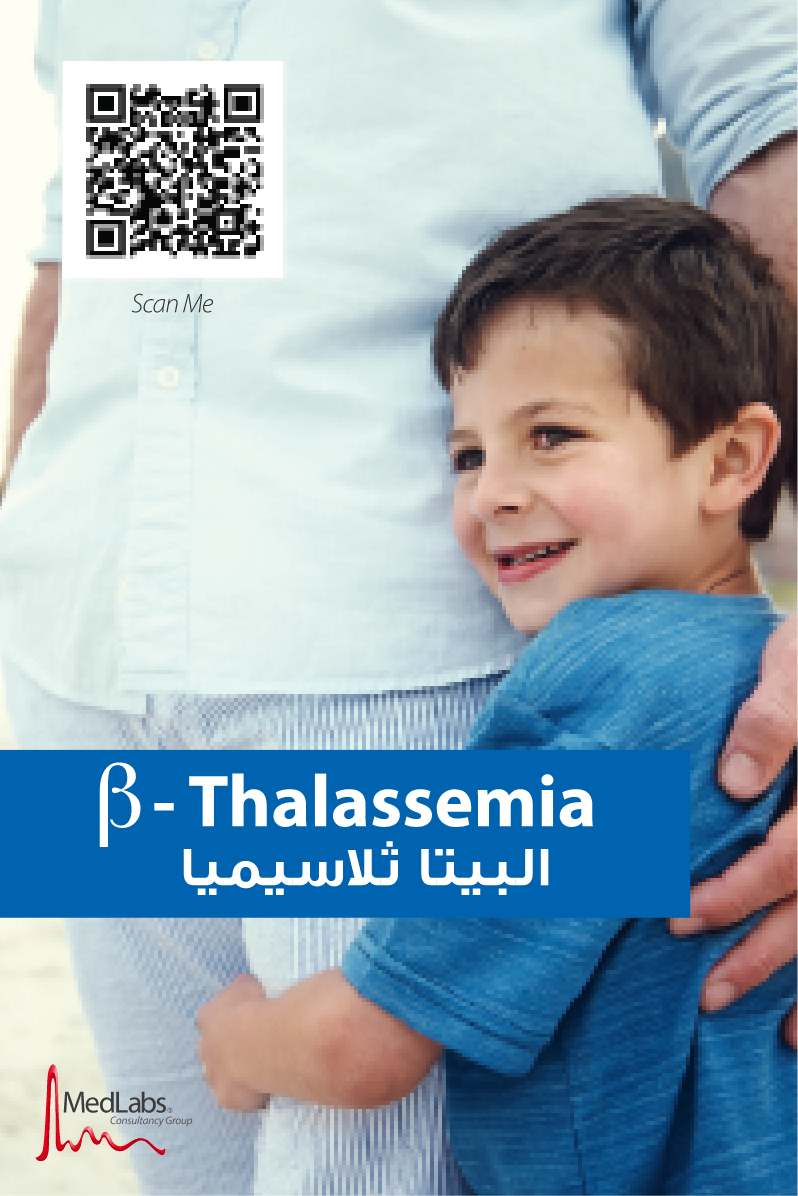
Beta-Thalassemia is a genetically inherited blood disorder that causes anemia (low red blood cell count or hemoglobin level). Mutations (faults) in the Beta Globin gene may reduce or abolish the production of a protein that is essential for the synthesis of Hemoglobin.
What is the incidence of Beta-Thalassemia and who’s at risk?
Beta-Thalassemia is the most common genetically inherited disease in the world and is most prevalent in Middle Eastern, Mediterranean and Asian people. Since Beta-Thalassemia is an inherited disease, there is no risk of contracting it from an affected individual or acquiring it later in life (Ref.: WHO).
What are the symptoms of Beta-Thalassemia?
Symptoms and severity of Beta-Thalassemia vary widely depending on the type, i.e. whether it’s Beta-Thalassemia Major or Beta-Thalassemia Minor.
Thalassemia Major is the more severe form of the disease. It results from inheriting two beta globin gene mutations, one from each parent. Symptoms appear in the first two years of life and include severe anemia, jaundice and retarded growth. Enlargement of the liver and spleen and deformation of facial and skull bones as well as delayed puberty become more obvious with age.
Thalassemia Minor is the mild form of the disease and results from inheriting a single mutation of the beta globin gene from one parent only. The affected individual may experience very mild anemia or no symptoms at all.
How is Beta-Thalassemia diagnosed?
Since there are many other conditions that cause anemia, laboratory testing is essential for the diagnosis and classification of Beta-Thalassemia. Such tests include:
Complete Blood Count (CBC), Blood Film examination, Hemoglobin Electrophoresis, Hemoglobin variant studies by HPLC and Genetic testing for Beta-Globin Gene Mutations.
How is Beta-Thalassemia major treated?
Regular blood transfusions are needed throughout the life of individuals affected with Beta-Thalassemia Major. Medications are given to rid the patient’s body and liver of iron overload that result from repeated blood transfusion. Bone Marrow Transplantation can cure Beta-Thalassemia; however, it is not an easy option due to the difficulty of finding a suitable bone marrow donor, the risk of transplant failure and the high cost.
Beta-Thalassemia inheritance:
[ + ] Beta-Thalassemia inheritance:Beta-Thalassemia Minor (a single Beta-Globin Gene Mutation)
[ ++ ] Beta-Thalassemia Major (Two Beta-Globin Gene Mutation)
[ ] Normal (No Beta-Globin Gene mutation)
Prevention & Control:
In populations with high prevalence of Beta-Thalassemia, premarital testing is recommended and required by health authorities to reduce the incidence of Beta-Thalassemia inheritance through the marriage of couples carrying the mutation. Counseling for married couples with the mutation before having children is recommended.
Prenatal diagnosis (testing the fetus for the mutation during pregnancy) is recommended for couples who are positive for the mutation.





